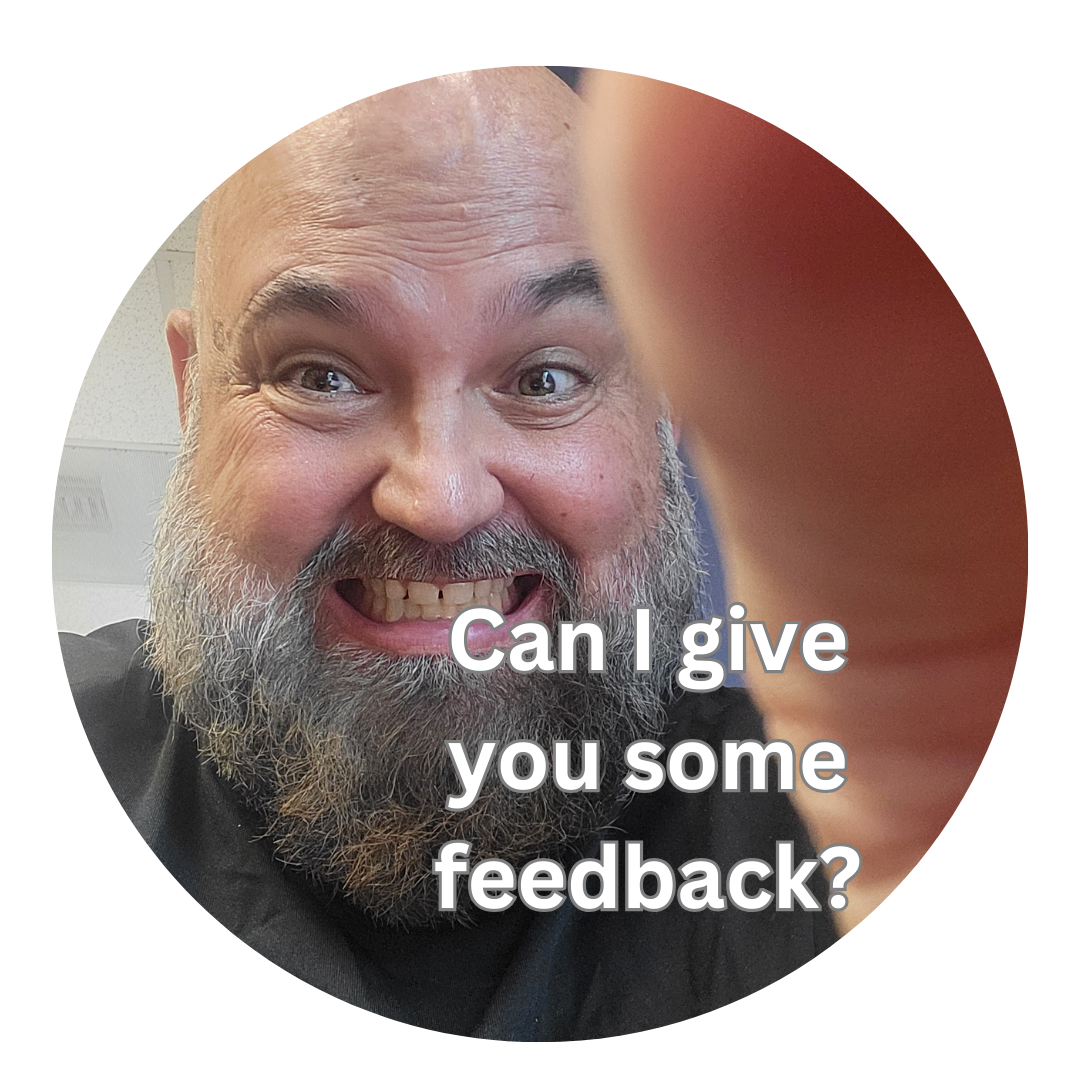Ever had someone say, “Can I give you some feedback?” and you immediately thought, "Oh, great. What did I forget this time?" That’s pretty much a normal day for anyone with ADHD. But hey, it’s not all bad. Feedback can be helpful, like when someone kindly informs you that wearing your shirt inside out for a Zoom meeting is probably not a fashion statement. But let's face it, for us ADHD folks, feedback feels a little like a surprise pop quiz. And, as usual, I didn’t study.
The Time I Thought Feedback Was a Gift (Spoiler: It Wasn’t)
Let me set the scene: I’m running late (classic), and I’ve just delivered a presentation that was supposed to be about customer retention strategies. Only, I ended up on an impromptu rant about why cake pops are superior to regular cakes because they’re portable. I thought I nailed it. Audience seemed interested, I even saw some heads nodding (likely at the cake pop genius I was dropping). But then came the feedback.
“Can I give you some feedback?” my boss said.
Oh no. Not the dreaded F-word. Feedback.
I braced myself, much like one does when you’re about to get whacked with one of those giant inflatable hammers from a carnival game. "Sure," I said, trying to seem open-minded while my ADHD brain screamed, RUN!
What followed was what could best be described as “constructive criticism” wrapped in polite words, but all I heard was: "Cake pops? Really? Stick to the script next time." I mean, okay, fair. But this was the ADHD brain at its finest—turning a strategy meeting into a dessert TED Talk.
Here’s What I Learned (Spoiler: Not About Cake Pops)
The trick is, feedback doesn’t have to make you feel like you’re about to be fired for an impromptu lecture on sweets. What if, instead of waiting to get hit with the inflatable hammer, you approached feedback with curiosity and empathy?
Think about it: As someone with ADHD, I thrive on curiosity. My brain runs on it, and it needs a little help staying on the road (like bumper lanes at a bowling alley). When someone starts feedback with a curious question instead of an accusation, I actually listen.
Instead of “Can I give you some feedback?” (cue the panic), how about, “I’ve noticed your presentation had some really creative points, like the cake pops. How do you think that fit with the strategy topic?” Ah, see, now we’re having a conversation where I don’t feel like I have to defend my love of cake pops.
Curiosity First, Empathy Always
Let’s talk about this magical combination: curiosity and empathy. The way I see it, curiosity is like a key that unlocks my ADHD brain’s potential, and empathy is the comfy couch I get to sit on while we work through whatever went off track.
For example, if you’re going to give me feedback, ask questions. “Hey, I noticed you struggled with the timeline on that project. What got in the way?” Oh, you mean besides the fact that I got distracted for three hours researching how astronaut food is made? Well, let me tell you! By leading with curiosity, we get into the heart of the issue and avoid my natural instinct to build a defensive moat around myself.
Empathy is also crucial because let’s face it—ADHD brains are like toddlers with sugar highs. One second, we’re full of energy, and the next, we’re face-planting into the couch. So when feedback is delivered with empathy, it feels more like you’re offering a hand up from the couch rather than just pointing out that I tripped.
Avoid the “Compliment Sandwich” – I See Right Through It
You know the “compliment sandwich,” right? It’s when someone says something nice, hits you with the criticism, then closes with something positive. It’s like eating a sandwich where the bread is fine, but the middle is a rock.
As someone with ADHD, I can see through this. “You did great on your presentation, but you totally missed the strategy. Still, your enthusiasm about cake pops was refreshing.” Nice try, but my brain is stuck on the part where I missed the strategy. Instead, give me straight-up feedback with a curious question—no sandwich needed.
Let’s Talk About the Wins… but Keep It Real
Yes, I want you to point out my wins, but don’t give me a fake win to soften the blow. I’m already late to everything—I can tell when something’s forced. Instead, keep it real: “You were really engaging during the presentation. I just think we could work on staying focused on the main topic.”
Oh, you noticed my focus went on vacation? Shocking.
“I” Statements: Saving the Conversation, One Observation at a Time
Here’s the real MVP of giving feedback to someone with ADHD: “I” statements. Instead of, “You need to be more organized,” say, “I noticed your last project timeline was tough to follow. Could we try a different format next time?”
That way, you’re not blaming me for the tornado of sticky notes and misplaced files that my desk becomes. You’re helping me tame the storm—together.
Conclusion: Feedback Is Scary, But Curiosity Is Magic
So here’s the deal. Feedback doesn’t have to be a trigger for my ADHD-induced spiral of panic. When you lead with curiosity and sprinkle in some empathy, you turn a moment of anxiety into an opportunity for growth. Next time someone says, “Can I give you some feedback?” instead of running for the hills, I’ll pause, take a deep breath, and think, “Maybe this is a chance to learn… as long as they don’t come for my cake pop analogies.”
There you have it, folks. ADHD brain or not, feedback doesn’t have to suck if you use curiosity as the magic ingredient—and maybe a little cake on the side.
Ready to rethink feedback and turn it into a tool for growth? Dive into the post, laugh at my ADHD misadventures, and discover how curiosity and empathy can change the way you give and receive feedback. Let's grow together!
#ADHDLife #FeedbackTips #CuriosityAndEmpathy #GrowthMindset #Neurodivergent #WorkplaceHumor #SelfImprovement #FunnyLifeLessons #ADHDCommunity #LeadershipSkills #PersonalGrowth


